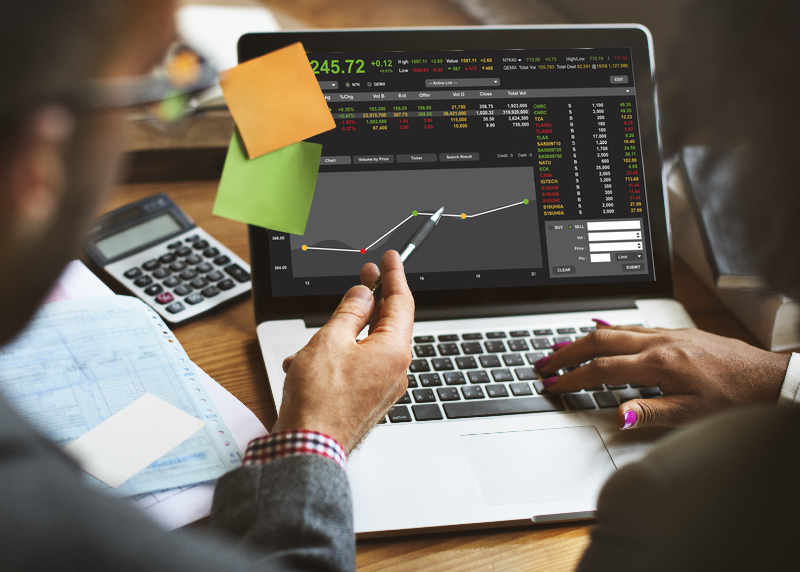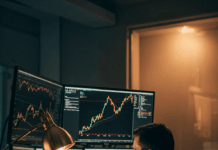If you have been browsing content pertaining to forex trading and popular trading platforms, you may have encountered “leverage” once or twice. Knowing how leverage operates in trading is crucial information if you want your capital to grow and establish a profitable trading market and environment.
What Is Leverage?
Generally speaking, leverage refers to borrowed money that will serve as capital for a firm to invest, expand its asset base, and obtain returns from the capital. The same principle is applied to leverage in forex trading.
Forex trading is the process of buying or selling currencies, which are also known as volumes. It is the money you, as a trader, can borrow from your broker to buy volumes of currencies that exceed the capital you have on hand.
For example, you have $1 million capital and would want to invest in a $5 million worth of volume. Your broker can lend you the additional $4 million until its due date. The good thing about leverage is that it does not demand interests, unlike stock trading markets. Take note that most of the time, leverage exceeds capital.
Being in credit is not necessarily bad, as long as you know ways on how to expand your money in trading, and that you have a steady flow of income to ensure that you will be able to pay your leverage. More information you can get here.
How Much Leverage Can You Get?
The amount of leverage depends on the schemes that the broker offers. These schemes are the capital-leverage ratio.
For example, leverage is being offered by a broker. A 1:1 ratio means that you did not borrow leverage and that your capital and purchasing power are just the same. While 1:2 means that for a $1 million capital, you could get $2 million purchasing power to avail volumes.
With that said, forex leverage equips traders with the necessary money and resources to open orders as much as 1,000 times more than their capital. Thus, rookies or even veteran traders don’t usually utilize high leverage to make larger investments that only require a meager sum of capital.
Considerations in Choosing a Broker with High Leverage
Before engaging with a broker to earn leverage, here are some parameters that they need to meet:
- Highly experienced in the Forex market (more than 15 years)
- Diverse range of trading instruments (stocks, currencies, CFDs)
- Personalized leverage ranging from 1:1 up to 1:1000
- 24/7 customer support
- Advanced analytical team
- Provide free educational programs and initiatives for traders
Some might claim that going for lower leverage is safer and more suitable since it also entails lower risks. But it is still smarter to go for the highest leverage offered since it does not incur any interest, and it is a good opportunity for you as a trader to grow and to make your capital prosper if you know and master the fundamentals of trading.
What Are Some Benefits in Using Forex Leverage?
There are a lot of benefits of using leverage, here are some:
- Profit maximization – This is the most crucial role played by leverage in trading. Upon giving you extra funds in your capital, you are able to expand your investments, open orders, and establish other potential sources of income. Your profit, therefore, is increased through leverage.
- Capital efficiency – This mainly refers to the efficient use of your capital. For a small amount of capital you have invested, you can gain a huge amount of purchasing power. This can be long overdue if you have to wait until you are able to build the required capital on your own.
How to Manage Leverage Risks
Many are discouraged from trying high leverage because of its corresponding high risks. But as long as you’re a smart trader and you know how to manage these risks, you are good to go! Here are some tips in managing leverage risks:
- Only trade disposable money. If Forex trading is your only source of income, it is extremely risky to allocate a major portion of your money in trading. We recommend that you first save up until you are able to obtain disposable money that you can freely use in trading.
- Employ stop-loss and limit orders. Orders are guidelines to a broker to place a trade for you when prices in the market hit a certain level. While stop-loss discontinues trades that can yield losses. You are guaranteed with greater security through imposing these measures.
- Closely monitor commodity currencies. Commodity currencies are highly dependent on present market conditions and current commodity prices. Accordingly, if prices of commodities increase, then the currencies of the commodity are likely to strengthen as well and vice versa.
To improve your performance in forex trading, you should take note of currency pairs whose prices are directly related, and those pairs whose prices are inversely related. Effective forex day trading strategies often involve understanding these correlations. Diversification of your portfolio can serve as your key to manage risks.
Find a Home-Based Business to Start-Up >>> Hundreds of Business Listings.

















































